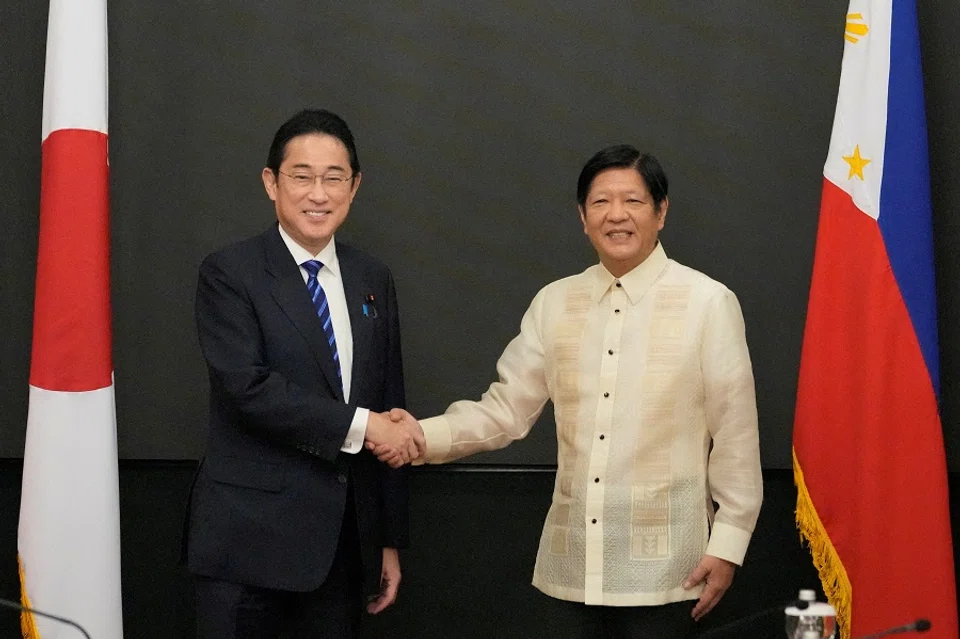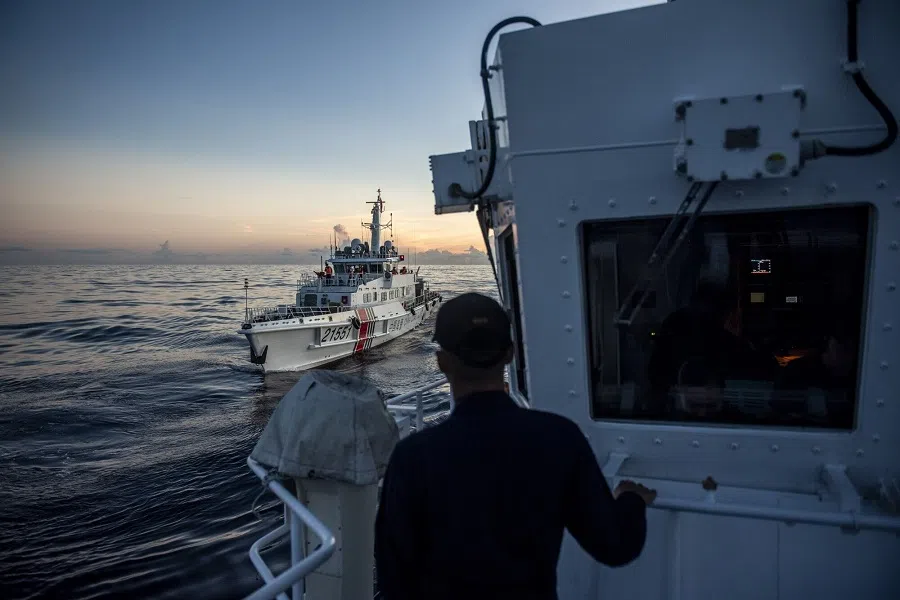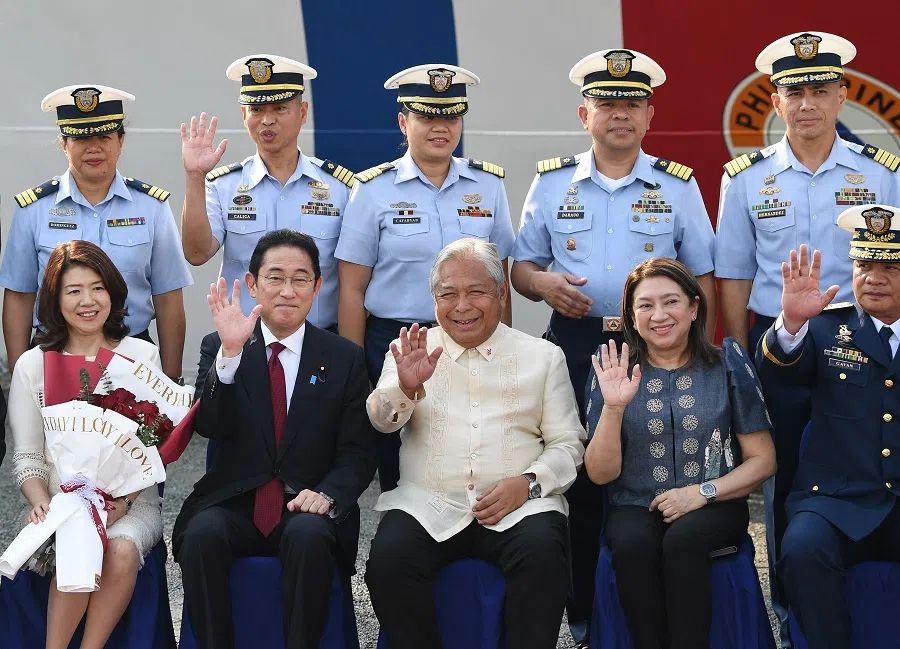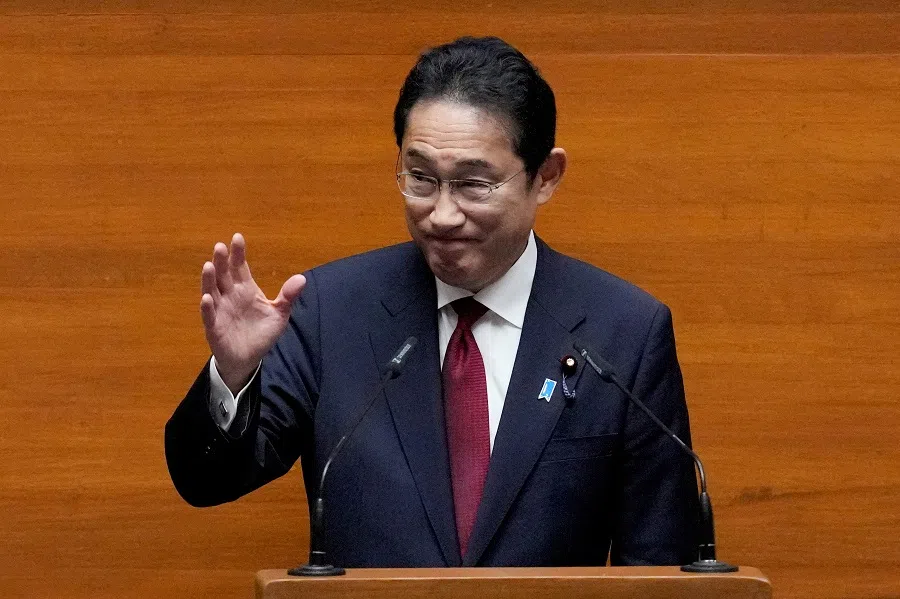Japanese academic: Necessary for Japan to support Philippines' security capabilities
Amid rising tensions in the South China Sea between the Philippines and China, Japan is looking to forge closer security relations with the Philippines. An envisaged reciprocal access agreement between the Philippines and Japan would be an important step towards that end and help to achieve maritime stability in East Asia.

Japanese Prime Minister Fumio Kishida visited the Philippines on 3 November, meeting with Philippine President Ferdinand Marcos Jr.
The two leaders reaffirmed the importance of maintaining a free and open international order based on the rule of law as well as the freedom of navigation and overflight in the East and South China Seas. They expressed their commitment to deepen security cooperation with a focus on the maritime domain, and to advance talks in this area through various frameworks such as the foreign and defence ministerial meeting ("2+2") and the Japan-US-Philippines trilateral dialogue.
Countering pressure from the Chinese
Based on this policy, an agreement was concluded in which the Japanese government would provide the Philippine Navy with a coastal radar system as official security assistance (OSA).
OSA is a grant aid programme that provides equipment and infrastructure to the militaries of like-minded countries. It aims to strengthen the security and deterrence capabilities of these countries in order to create a peaceful and stable international environment based on the rule of law.
The provision of coastal radars will improve the Philippines' Maritime Domain Awareness (MDA) capabilities, which are essential for countering pressure from the Chinese People's Liberation Army and China Coast Guard in the South China Sea.

The Japanese government adopted the implementation guidelines for OSA in April 2023, and the provision of a coastal radar system to the Philippines is the first time that the OSA has been implemented.
Until now, Japan has supported the strengthening of the Philippines' sea and air defence capabilities, such as by providing 12 patrol vessels to the Philippine Coast Guard and selling a warning and control radar to the Philippine military. The provision of coastal radars will improve the Philippines' Maritime Domain Awareness (MDA) capabilities, which are essential for countering pressure from the Chinese People's Liberation Army and China Coast Guard in the South China Sea.
Japan-Philippines RAA for stronger military links
Furthermore, the two leaders decided to commence negotiations on a reciprocal access agreement between Japan and the Philippines (Japan-Philippines RAA).
RAA is an agreement made in advance regarding military units conducting joint training or disaster relief operations in a partner country. This simplifies immigration procedures, sets out guidelines on the bringing in of weapons and ammunition, and decides in advance how to respond in the event of an incident.
If the RAA is concluded between the two countries, it will be easier for Japan Self-Defense Forces and the Philippine military to conduct joint exercises and disaster relief operations within each other's countries.
If negotiations between Japan and the Philippines go smoothly, the Philippines may become Japan's third country to conclude the RAA [reciprocal access agreement].

Japan signed its first RAA with Australia in January 2022. In August 2023, applying RAA for the first time, Japan Air Self-Defense Force aircraft, including F-35A fighter jets, deployed to Australia and conducted joint training with the Royal Australian Air Force.
In January 2023, Japan signed its second RAA with the UK. Applying this RAA, a British Army unit visited Japan in October of the same year and conducted joint training with Japanese Ground Self-Defense Force units, simulating island defense.
If negotiations between Japan and the Philippines go smoothly, the Philippines may become Japan's third country to conclude the RAA.
The implementation of the Japan-Philippines RAA will further invigorate joint training and exchanges between the military units of the two countries, which is expected to lead to maritime stability in East Asia.
Working with allies of allies
Japan has advocated the Free and Open Indo-Pacific (FOIP) Vision, in which maintaining and strengthening a stable maritime order based on the rule of law is one of its important pillars. To realise the FOIP concept, Japan is not only further strengthening its security cooperation with its ally, the US, but also strengthening its security relationships with other allies of the US.
Part of this endeavour involves strengthening cooperation between the Japanese Self-Defense Forces and the Australian and British militaries respectively, and the inking of the RAA with each of them represents progress in security cooperation with these countries. The implementation of the Japan-Philippines RAA will further invigorate joint training and exchanges between the military units of the two countries, which is expected to lead to maritime stability in East Asia.
The Philippines is an important country in maintaining the maritime order in East Asia. To the north, it faces Taiwan via the Bashi Strait, and to the west, it faces China via the South China Sea. The Philippines is an ally of the US, providing bases to support US maritime military operations in East Asia, and aiming to resolve conflicts with China in the South China Sea through international law.
The Philippines is thus an extremely important partner for Japan in maintaining a free and open maritime order based on the rule of law. This may be a key reason why Japan aims to conclude an RAA with the Philippines.
This will likely lead to improvements in the capabilities of the Philippine military and an increase in the presence of the Self-Defense Forces in areas surrounding the Philippines, including the South China Sea.
More joint exercises in South China Sea
If Japan and the Philippines conclude the RAA, there will be increased joint training and exercises between the Self-Defense Forces and the Philippine military. This will likely lead to improvements in the capabilities of the Philippine military and an increase in the presence of the Self-Defense Forces in areas surrounding the Philippines, including the South China Sea.
There could also be enhanced joint training and exercises with the US military, Australian military and others. In August 2023, a joint exercise by Japan, the US, Australia and the Philippines was held in the South China Sea. If the RAA is concluded with the Philippines following Australia, the Self-Defense Forces will be able to smoothly participate in multilateral exercises in both countries.

In the South China Sea, China's coercive actions against the Philippines are increasing. To oppose attempts to change the status quo by force and to maintain a maritime order based on the rule of law, it is necessary to support the Philippines in strengthening its security capabilities and to develop multilateral security partnerships with the Philippines in cooperation with the US and other countries. Prime Minister Kishida's recent visit to the Philippines can be said to be an important step towards realising this goal.



![[Big read] When the Arctic opens, what happens to Singapore?](https://cassette.sphdigital.com.sg/image/thinkchina/da65edebca34645c711c55e83e9877109b3c53847ebb1305573974651df1d13a)
![[Video] George Yeo: America’s deep pain — and why China won’t colonise](https://cassette.sphdigital.com.sg/image/thinkchina/15083e45d96c12390bdea6af2daf19fd9fcd875aa44a0f92796f34e3dad561cc)
